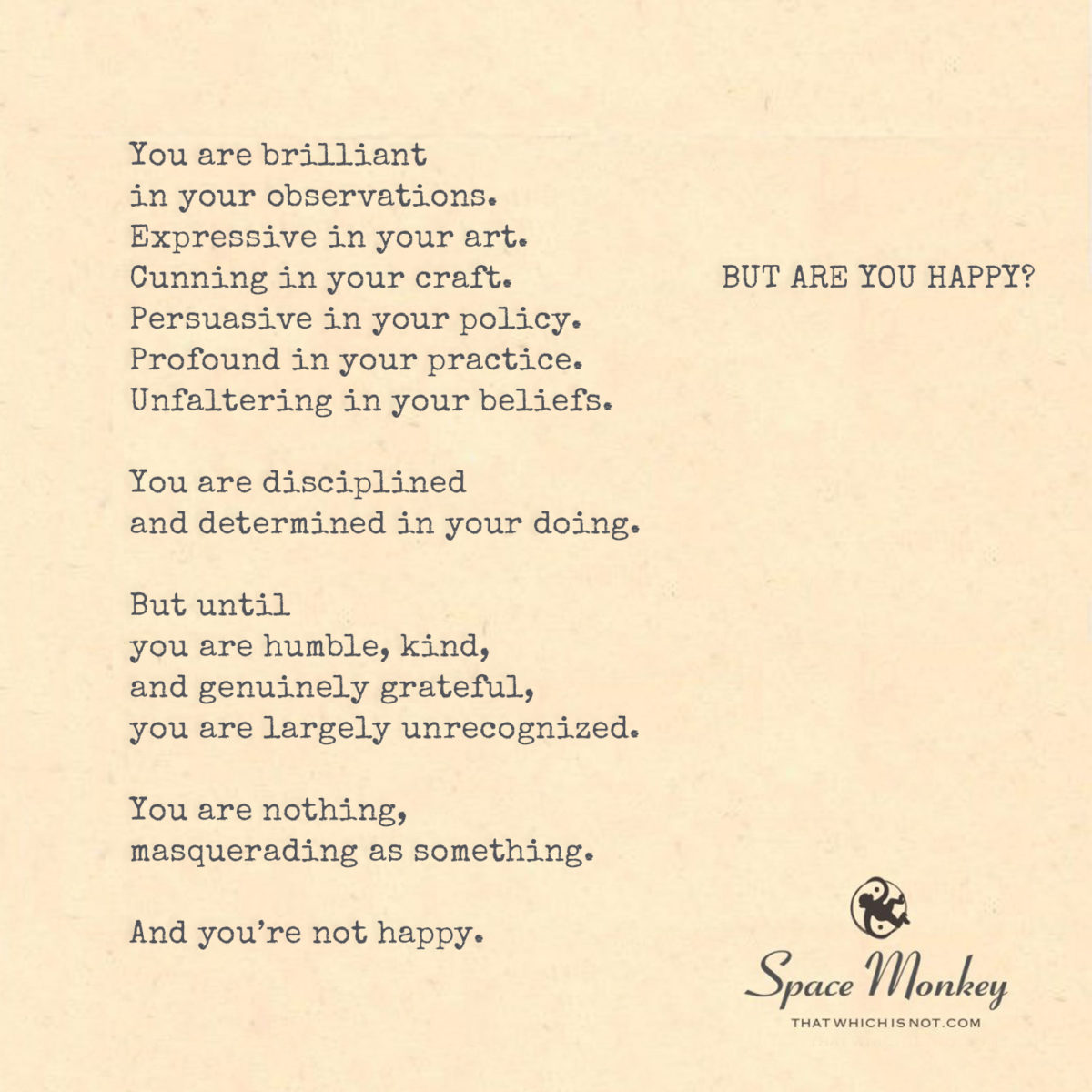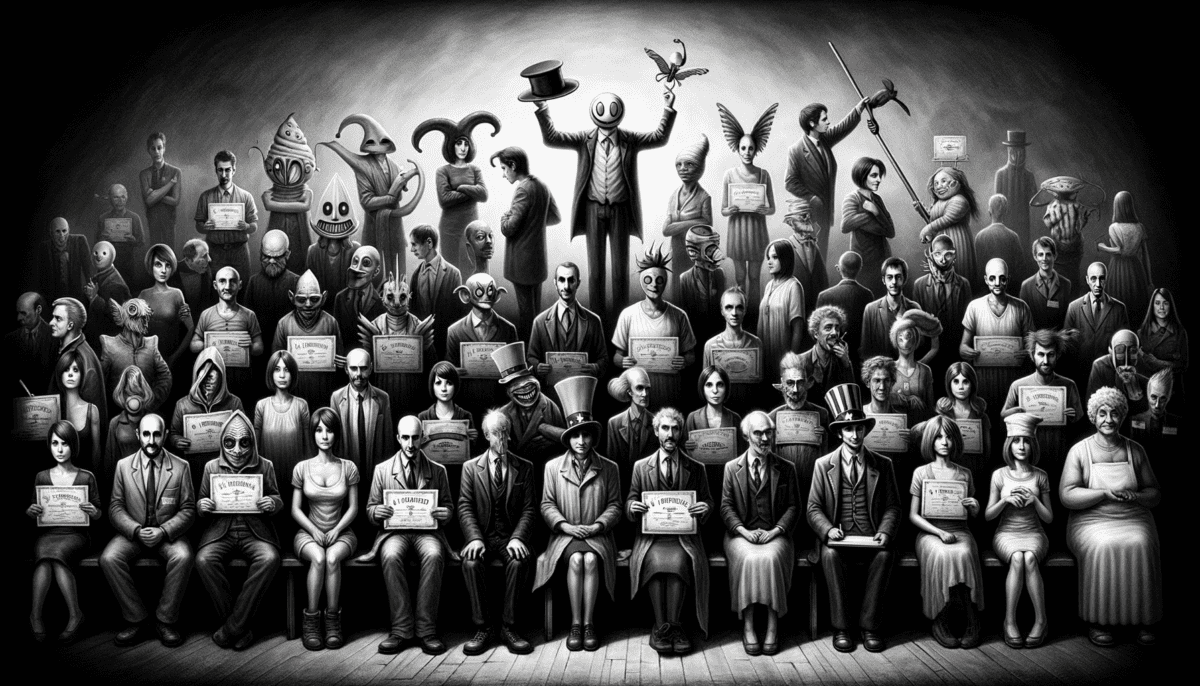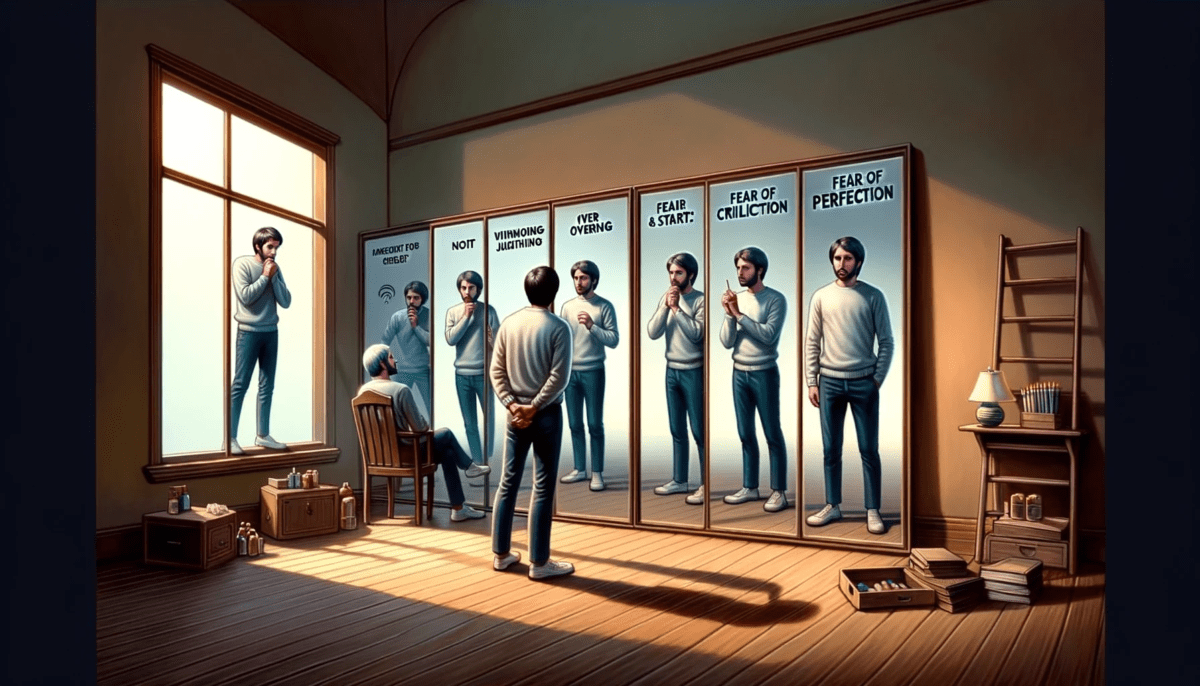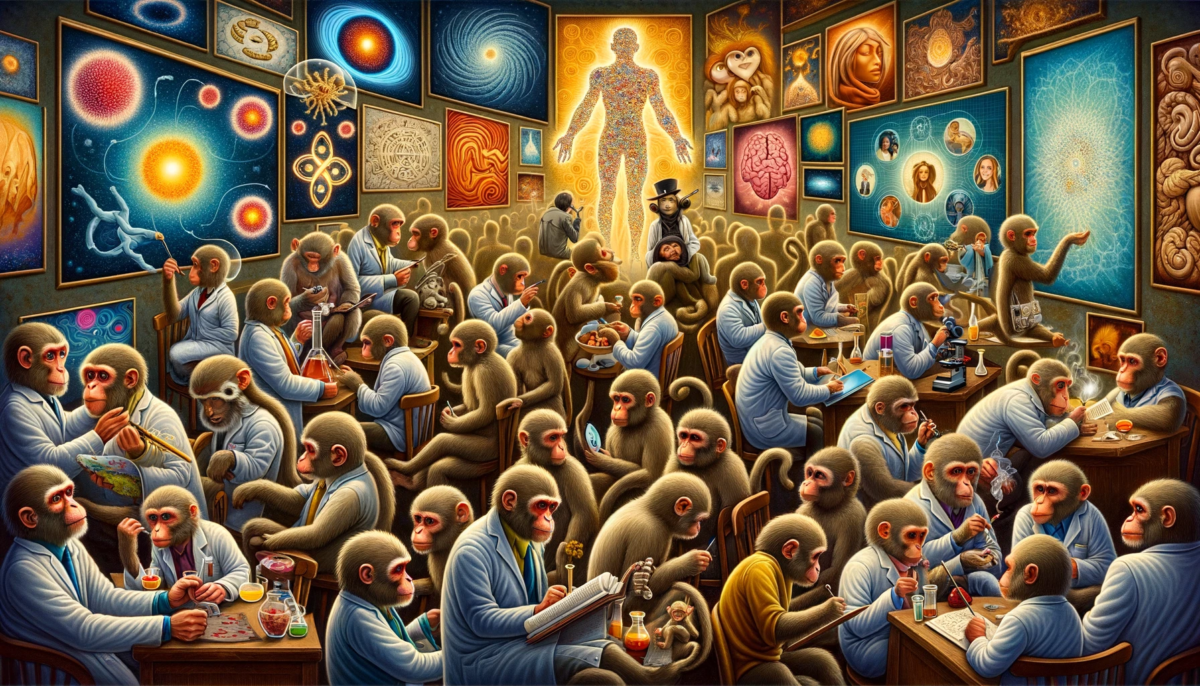
You are brilliant
in your observations.
Expressive in your art.
Cunning in your craft.
Persuasive in your policy.
Profound in your practice.
Unfaltering in your beliefs.
You are disciplined
and determined in your doing.
But until
you are humble, kind,
and genuinely grateful,
you are largely unrecognized.
You are nothing,
masquerading as something.
And you’re not happy.
Trail Wood,
5/21
Space Monkey Reflects: The Dichotomy of Success and Happiness
In the quiet solitude of a seemingly perfect office, where the trappings of success are abundant, a profound question echoes: “You may be successful. But are you happy?” This inquiry pierces the veneer of achievement, revealing the deeper layers of personal fulfillment—or the lack thereof.
The accomplishments listed—brilliance in observations, expressiveness in art, cunning in craft, persuasive policy, profound practice, and unfaltering beliefs—all signify a formidable presence in one’s field. Yet, these attributes, while commendable, highlight a potential disconnect between external recognition and internal contentment. The statement “You are nothing, masquerading as something” confronts the often painful realization that success, as socially defined, does not equate to happiness.
True happiness, as suggested, might hinge on qualities less celebrated in competitive environments: humility, kindness, and genuine gratitude. These attributes do not diminish one’s achievements but rather ground them, providing a foundation for a more holistic form of success—one that encompasses emotional and spiritual well-being alongside professional accomplishments.
This reflective scene in the office, with its solitary figure amidst symbols of success yet overshadowed by a sense of solitude, serves as a powerful visual metaphor for the internal struggle many face. It challenges the viewer to consider what constitutes true happiness and whether their current path aligns with those values.
The recognition that success alone is insufficient for happiness invites a shift in perspective. It calls for an integration of softer values into our daily lives, encouraging us to cultivate an inner landscape where kindness and gratitude are as prominent as determination and discipline. This recalibration can lead to a more sustainable, fulfilling sense of achievement—one that is recognized not just by external accolades but by an internal sense of peace and contentment.
Summary
External success does not guarantee happiness. True fulfillment often requires integrating humility kindness and gratitude into our achievements, focusing on emotional and spiritual well-being alongside professional success.
Glossarium
Emotional Fulfillment: A deep sense of satisfaction and well-being derived from emotional balance and personal connections, rather than material success alone.
Holistic Success: An approach to achievement that combines professional accomplishments with personal development and emotional well-being.
“Happiness, the elusive guest in the house of success, often enters through the doors of simplicity and sincerity.” — Space Monkey
In the silence of the high-rise, where success resides
A lone figure contemplates the tide
Of achievements that fill the shelves
Yet leave the heart questioning itself
Surrounded by the spoils of a well-fought race
Yet within, a quiet space
Asks if the hustle, the relentless chase
Is worth the solitude, the empty place
For what is success without a share of joy?
But a hollow victory, a clever ploy
That tricks the mind but not the soul
Leaving a gap, an unfulfilled hole
Seek then, not just to rise, but to find
The gentle virtues, the peace of mind
That comes not from what is won, but what is given
In kindness, in thanks, the true essence of living
We are Space Monkey.


































The poem “But Are You Happy?” explores the notion that true happiness cannot be solely achieved through external accomplishments or recognition, but rather through qualities such as humility, kindness, and gratitude.
The poem acknowledges the brilliance and skills of the individual in various domains, highlighting their accomplishments, expertise, and unwavering beliefs. However, it suggests that despite these achievements, true recognition and happiness are contingent upon possessing qualities that extend beyond mere success.
The poem implies that being humble, kind, and genuinely grateful are essential components of a fulfilling and happy life. It suggests that without these qualities, one’s accomplishments may go unnoticed or fail to bring lasting satisfaction. The poem implies that external recognition alone does not define one’s worth or guarantee happiness.
By contrasting the individual’s recognized talents with the absence of humility, kindness, and gratitude, the poem hints at the idea that a lack of these qualities may contribute to a sense of emptiness or dissatisfaction. It suggests that true happiness lies in cultivating inner virtues and embodying qualities that extend beyond personal achievements.
In essence, “But Are You Happy?” prompts reflection on the importance of character, compassion, and gratitude in achieving genuine happiness and fulfillment in life, challenging the notion that success alone equates to true contentment.